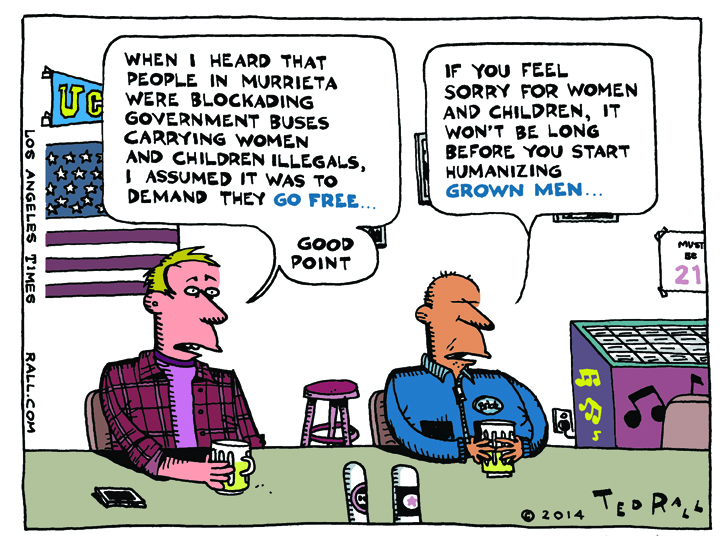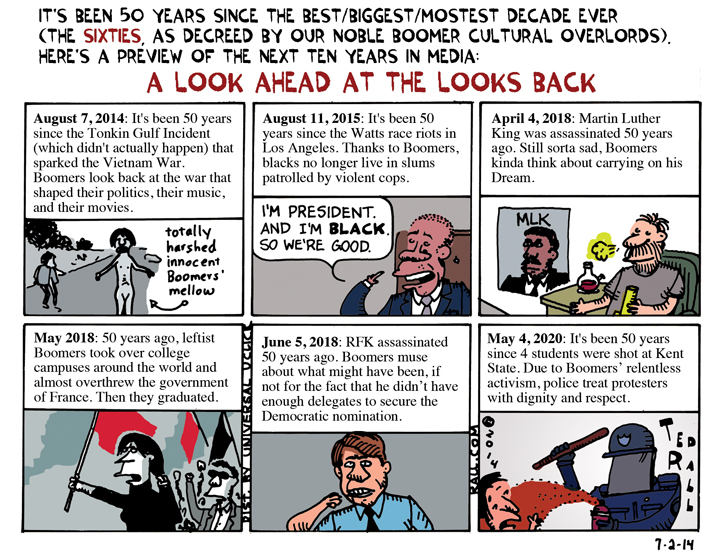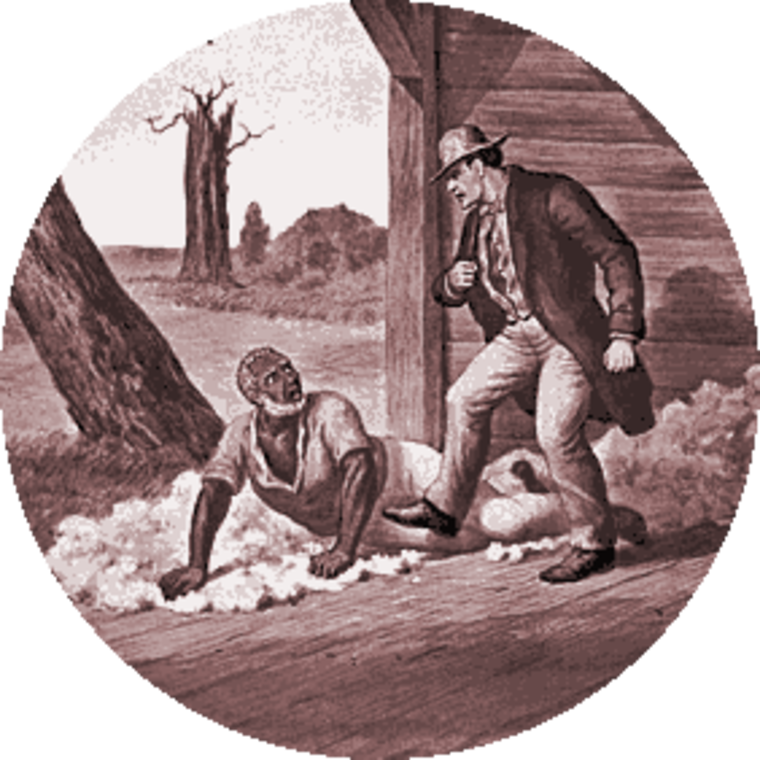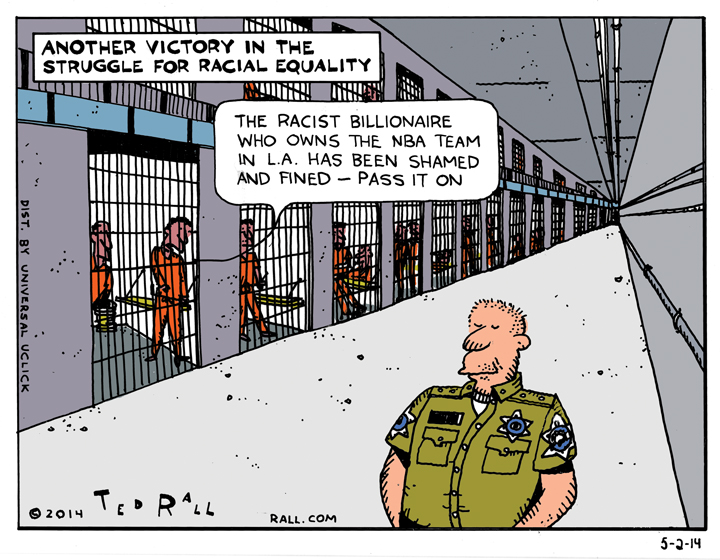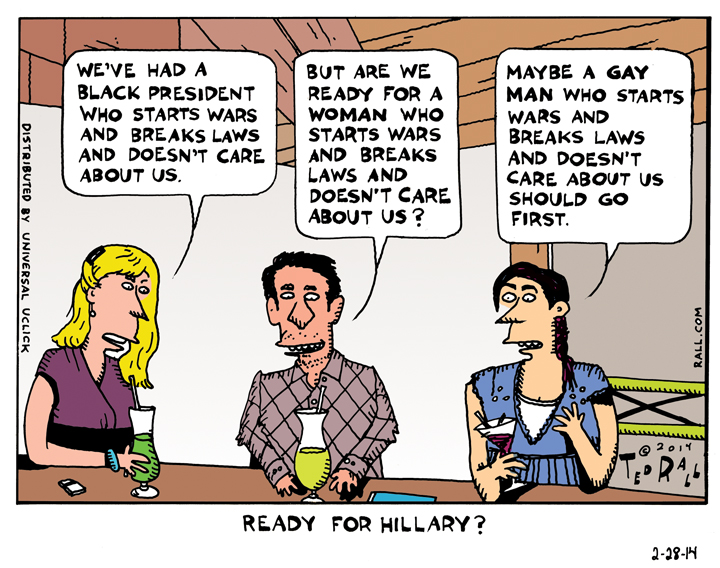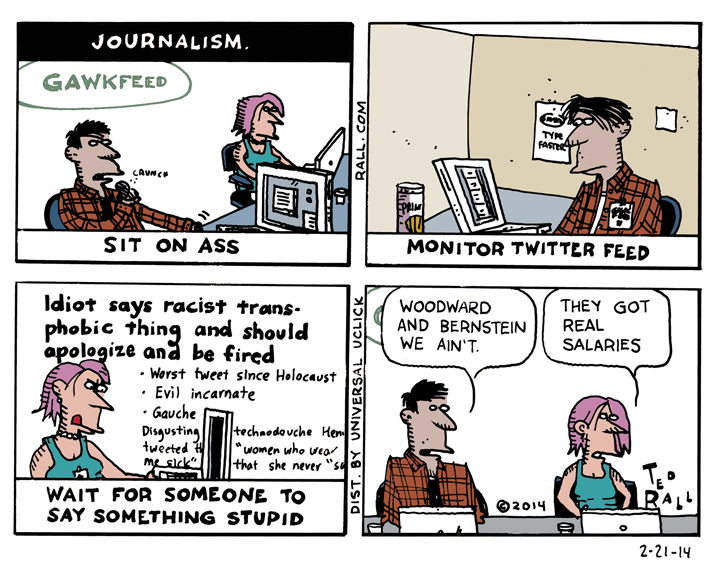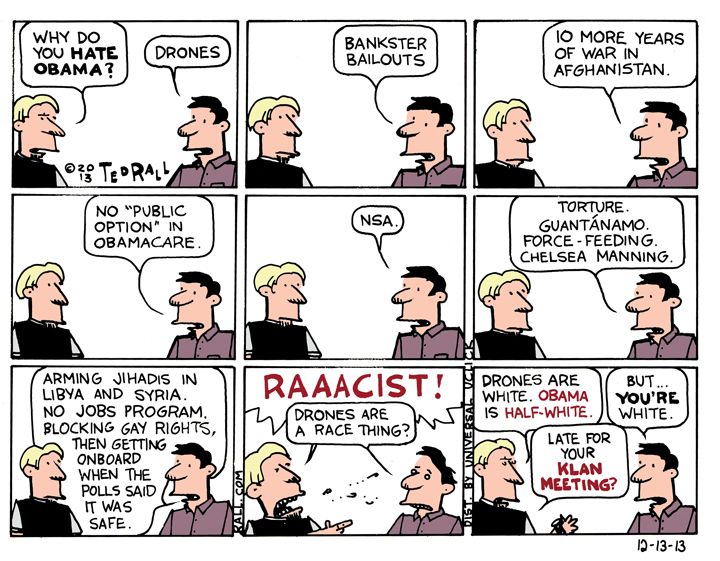Hands down, the most asked question asked of political cartoonists is: where do you get your ideas?
To which my first reply is usually some variant of “if you have trouble coming up with complaints about politicians or politics, this probably isn’t the right job for you.” Coming up with ideas, or at least topics, has never been an issue for me or any other professional cartoonist I know.
Like other artists, editorial cartoonists use their outlet to work out their issues in public. Most people get annoyed at the president and other political types. The difference between other people and we cartoonists is that, rather than random grousing over beers, we labor under the illusion that we can actually change things (yes, by drawing funny pictures…so we’re delusional. Whatever.).
Sometimes our cartoons reflect our visceral personal reactions to a news story. This week’s cartoon is an example.
When I first heard news accounts of people in Murrieta, California gathering to block federal government buses transporting women and children detained for entering the United States illegally from entering the town, I assumed the protesters were advocates for the immigrants — well-meaning liberals protesting the shabby treatment, such as being held in prisons for up to two years while awaiting deportation hearings, in inhumane conditions and often without adequate legal representation, suffered by people fleeing economic hardship and rampant crime in Central America and elsewhere.
Upon further investigation, however, I learned that the protesters were actually on the opposite side: right-the feds were cruel to what are, by any sane account, refugees from economic and political violence, but rather that they weren’t aggressive enough in enforcing border controls.
As a leftie, I am unusual. I agree that the border has been left open intentionally, and that it ought to be secured. You can’t call yourself a nation-state without controlling who comes and goes; to the contrary, strong border control is one of the defining features of a functioning nation-state. Also, it’s nonsense to complain that sealing the Mexico-U.S. frontier isn’t feasible. The former Soviet Union had a southern border many times longer than that to control, both to keep citizens in and to keep insurgents from places like Afghanistan out, and possessed fewer resources than the U.S. — yet it successfully managed to keep things under wraps.
I favor a wall, a strong border. But it will never happen. Republicans like the border open because their corporate backers like the depressing effect illegal immigration has upon wages; Democrats know that the legally-born children of today’s illegal immigrants are the Democratic voters of tomorrow. Both parties are in cahoots on this issue.
In the meantime, I can’t view the human traffic across the border, originating in some cases from countries destabilized by American intervention, as anything less than people who need and deserve our help. By all means, complain about the perfidy of a federal government that claims the right to invade sovereign nations on the other side of the world yet pretends not to be able to control who comes and goes from Mexico to California. But please don’t pick on the women and children — and the adult men — who are merely doing what comes naturally: trying to survive.

